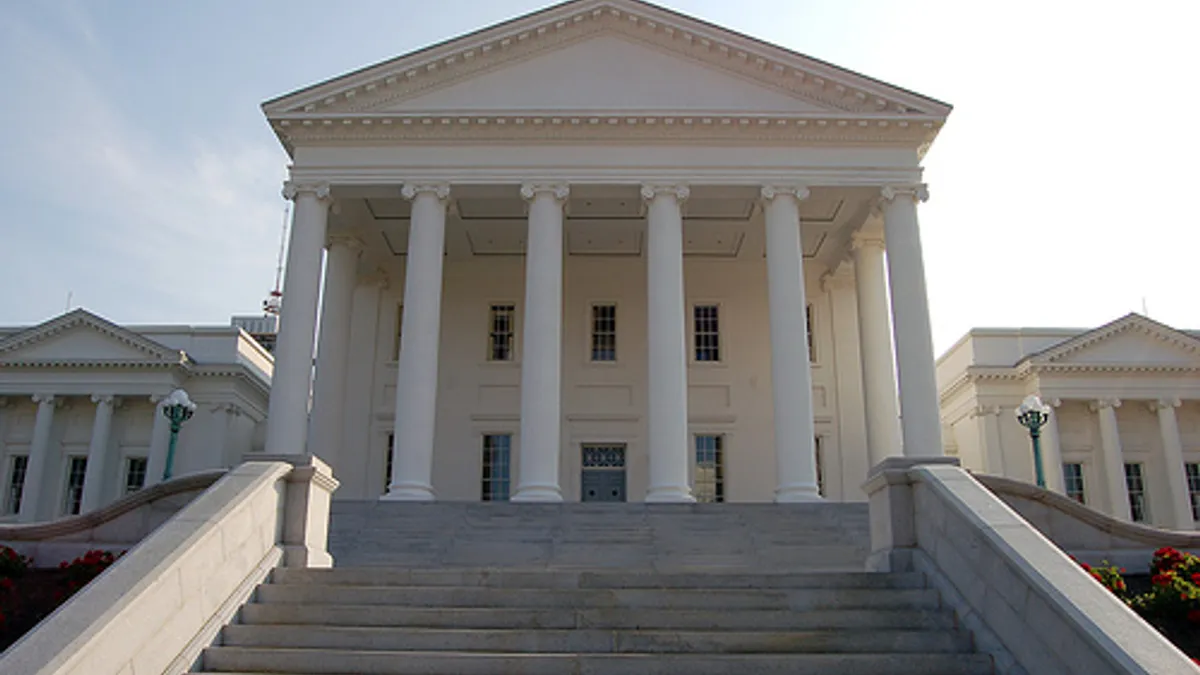Dive Brief:
-
The Virginia Supreme Court on Thursday upheld a state law that suspends regulatory review of electric rates.
-
The court ruled 6-1 in favor of a 2015 law shields utilities from giving refunds or having to lower their rates and prevents them from raising their base rates for several years.
- The legal challenge was mounted by the Old Dominion Committee for Fair Utility Rates and the Virginia Committee for Fair Utility Rates, which represent large industrial customers of Appalachian Power Co. and Dominion Energy, respectively.
Dive Insight:
Virginia’s State Corporation Commission was formed in 1902, but was not given authority to regulate electric rates until the passage of the 1971 Constitution of Virginia.
Virginia deregulated the state’s electric power sector on 1999 and capped base electric rates for seven years. The General Assembly ended the deregulation program in 2008 and established a new regulatory regime that subjected utility rates to biennial review.
The General Assembly suspended that review until 2020 under a 2015 law that also barred any adjustments to base rates during that period. At the time, the rationale was to shield customers from rate increases related to compliance with the Clean Power Plan, an Obama-era carbon regulation for power plants the Trump administration has put on hold and is likely to change significantly.
Old Dominion contested the suspension of biennial review at the SCC, arguing that while giving the SCC wide latitude to determine the standards that must be used by the Commission in regulating rates, the General Assembly cannot “to transfer the Commission’s ratemaking authority to itself.”
Defendants Dominion Power, Appalachian Power and the Virginia Attorney General argued that existing law “clearly and unambiguously subordinates the Commission’s ratemaking authority to limitations established by the General Assembly.”
The SCC agreed with the defendants in a July ruling, and the Supreme Court has now upheld that ruling.
Dominion cheered the court’s decision, telling The Richmond Times-Dispatch it is "pleased the court affirmed the constitutional and statutory authority of the General Assembly to make policy decisions for the commonwealth."
"It looks as if Virginia is headed toward a state version of the Clean Power Plan, which makes (the law suspending rate reviews) all the more relevant and appropriate," Dominion officials added.
Shannon Baker-Branstetter, policy counsel for Consumers Union, the policy and mobilization division of Consumer Reports, said the ruling will allow Dominion to "pocket hundreds of millions of dollars owed to Virginia families who were overcharged for several years."
"The decision also means the Virginia State Corporation Commission, charged with protecting the consumer interest, will continue to be constrained in their ability to regulate the state’s largest utility monopoly," she said.














